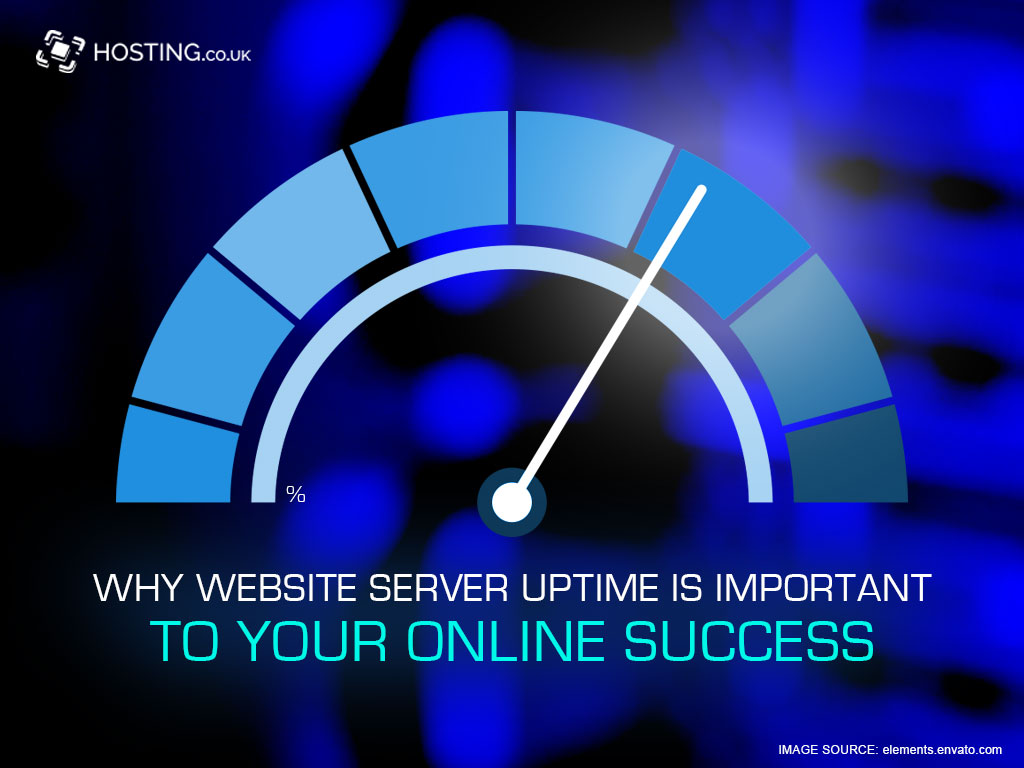Uptime is critical for web hosting. It ensures your website is always accessible.
But why is uptime so important? Imagine visiting your favorite website, but it’s down. Frustrating, right? This is why uptime matters. When your website is consistently available, visitors trust it more. They enjoy a smoother experience, and you avoid lost revenue.
High uptime means fewer disruptions. It keeps your website running around the clock. This leads to better search engine rankings and satisfied customers. In this blog, we’ll dive into why uptime is vital for web hosting. You’ll understand its impact on your online presence and business success. Keep reading to learn more!
Introduction To Uptime
Welcome to our blog! Today, we’ll discuss why uptime is crucial for web hosting. Understanding uptime is essential for anyone running a website. It impacts your site’s reliability and user experience.
Definition Of Uptime
Uptime refers to the period a website is available and functional. It’s usually measured in percentages. For example, 99.9% uptime means the site is down only 0.1% of the time. This small percentage can still affect user access. Thus, higher uptime is better.
Importance In Web Hosting
High uptime ensures visitors can access your site anytime. This is vital for e-commerce sites. Downtime can lead to lost sales and frustrated customers. Consistent uptime builds trust with your audience. They expect your site to be available when they need it.
Search engines also prioritize sites with high uptime. Your site’s ranking can improve if it’s reliable. This means more traffic and potential growth for your business. A good web hosting service guarantees high uptime. This investment pays off in the long run.

Credit: glorify.com
User Experience
Uptime is critical for web hosting. It directly affects user experience. People expect websites to load quickly and work smoothly. If your site is often down, visitors will get frustrated. This can lead to a poor user experience.
Impact On Visitors
When a website is down, visitors can’t access information. They may leave and never return. This impacts your traffic and engagement. Slow or unavailable websites frustrate users. They seek alternatives for a better experience.
Trust And Reliability
High uptime builds trust with your audience. Users rely on your website to be available. Consistent uptime shows reliability. It assures visitors that your site is dependable. Frequent downtime erodes this trust. People may question your website’s stability.
Seo Benefits
Uptime is crucial for web hosting. It impacts SEO in many ways. High uptime means your site is always accessible. This helps search engines find and rank your site better. Here, we will explore the SEO benefits of uptime.
Search Engine Rankings
Search engines rank sites with high uptime higher. They see these sites as reliable. Frequent downtimes can lower your rankings. This means less traffic and fewer visitors. Consistent uptime keeps your site visible.
Crawling And Indexing
Search engines need to crawl and index your site. High uptime ensures this process runs smoothly. If your site is down, search engines can’t access it. This delays indexing. Regular downtimes can make search engines skip your site. High uptime supports efficient crawling and indexing.
Revenue Implications
Uptime is crucial for web hosting. It directly impacts revenue. Downtime can lead to lost sales, decreased productivity, and damaged reputation. Let’s explore the revenue implications of uptime for different types of websites.
E-commerce Sites
For e-commerce sites, uptime is vital. A few minutes of downtime can mean thousands of dollars lost. Customers expect websites to be available 24/7. If your site is down, they will go to competitors. Here are some key points to consider:
- Customer Trust: Consistent uptime builds trust. Customers are more likely to return.
- Sales Opportunities: Every minute your site is up, there is a chance for a sale.
- Brand Reputation: Frequent downtime can damage your brand’s image.
Ensuring high uptime can directly increase your sales and customer loyalty.
Advertising Revenue
Websites that rely on advertising revenue also need high uptime. Downtime can lead to significant revenue loss. Advertisers pay for impressions and clicks. If your site is down, advertisers lose exposure. This can lead to:
- Decreased Ad Revenue: Fewer impressions and clicks mean less income.
- Advertiser Dissatisfaction: Advertisers may choose other platforms if uptime is low.
- Lower Traffic: Frequent downtime can reduce your site’s traffic over time.
Maintaining high uptime ensures you maximize your advertising revenue and keep advertisers happy.
Customer Retention
Uptime is a critical factor for web hosting. It directly impacts customer retention. If your website is frequently down, users will get frustrated. They will look for alternatives. Keeping your website up and running is essential. It helps in maintaining a strong customer base.
Repeat Visitors
Visitors return to a website they trust. Uptime ensures that trust. If your website is available every time they visit, they will come back. Frequent downtime can drive them away. Consistent uptime makes them confident in your service.
- Ensures visitors find your site operational
- Builds trust and reliability
- Encourages repeat visits
Customer Loyalty
Customer loyalty is built through positive experiences. A reliable website is part of that experience. High uptime means your customers can access your services anytime. This reliability fosters loyalty.
| High Uptime | Low Uptime |
|---|---|
| Builds trust | Causes frustration |
| Encourages loyalty | Leads to abandonment |
| Increases satisfaction | Decreases satisfaction |
Customers value consistency. They are more likely to stay loyal if your site is always available. Downtime can erode that loyalty. Ensuring high uptime is crucial for retaining customers.

Credit: www.rosehosting.com
Competitor Advantage
Ensuring your website has high uptime is crucial for gaining a competitive advantage. Websites with consistent uptime outperform those with frequent downtimes. This can lead to greater success and customer retention. Let’s explore how uptime can give you a competitor advantage.
Staying Ahead
High uptime keeps your website accessible. This means customers can visit your site anytime they want. Competitors with low uptime face frequent downtimes. This causes them to lose traffic and sales. Your website, on the other hand, remains available and reliable. This provides a significant edge over others.
Consider this scenario:
| Website | Uptime Percentage | Downtime (per month) |
|---|---|---|
| Site A | 99.9% | 43 minutes |
| Site B | 98.5% | 11 hours |
Site A has a clear advantage. It has fewer downtimes. Customers prefer to visit Site A due to its reliability.
Market Reputation
Your website’s uptime impacts your market reputation. A high uptime builds trust with your customers. They see your site as reliable and professional. This trust translates into repeat visits and higher sales.
Conversely, frequent downtimes harm your reputation. Customers may see your business as unreliable. This can lead to negative reviews and loss of potential sales.
Consider these points:
- Positive Reviews: High uptime leads to satisfied customers. They leave positive reviews and recommend your site.
- Customer Loyalty: Reliable sites foster loyalty. Customers return and make more purchases.
- Brand Image: A website with high uptime enhances your brand image. It shows you prioritize reliability.
Maintaining high uptime should be a priority. It ensures your market reputation remains positive and strong.
Monitoring Tools
Monitoring tools are essential for maintaining high uptime in web hosting. They help you keep track of server performance and identify issues quickly. Without proper monitoring, you may not notice problems until it’s too late. Monitoring tools ensure your website stays online and performs well.
Types Of Tools
There are various types of monitoring tools available. Some tools check server uptime, while others monitor website performance. Uptime monitoring tools alert you if your site goes down. Performance monitoring tools help you track load times and user experience. Both types are crucial for a reliable website.
Choosing The Right Tool
Choosing the right tool depends on your needs. If uptime is your main concern, select a tool that focuses on server availability. For performance issues, choose a tool that tracks site speed and user interaction. Some tools offer both features, providing a comprehensive solution.
Ensure the tool is easy to use. It should offer clear reports and alerts. A good tool should also integrate with your existing systems. This makes it easier to manage everything from one place.
Improving Uptime
Improving uptime is crucial for any website. High uptime ensures your site is always accessible. This leads to better user experience and higher trust. You can achieve this by following best practices and selecting the right hosting provider.
Best Practices
Monitor your website regularly. Use tools that provide real-time alerts for downtime. This helps in quickly addressing issues. Keep your software up to date. Updated software includes security patches and performance improvements. Optimize your website’s code and database. This reduces load times and enhances stability. Also, use a content delivery network (CDN). A CDN distributes your content across multiple servers. This improves load times and reduces the risk of downtime.
Hosting Provider Selection
Choose a reliable hosting provider. Look for one with a proven track record of high uptime. Check their uptime guarantees. Providers should offer at least 99.9% uptime. Read reviews and testimonials. See what other users say about their service. Also, consider their customer support. Reliable support is crucial for quickly resolving any issues. Lastly, assess their backup options. Regular backups ensure data recovery if something goes wrong.

Credit: www.hosting.co.uk
Frequently Asked Questions
What Is Uptime In Web Hosting?
Uptime refers to the time your website is online and accessible to users. It’s crucial for maintaining your site’s credibility and visitor trust.
How Does Uptime Affect Seo?
High uptime ensures your website is always accessible, improving user experience and potentially boosting your search engine rankings. Downtime can negatively impact SEO.
Why Is High Uptime Important?
High uptime is essential because it ensures your website is always available to visitors. This improves user experience and credibility.
What Causes Website Downtime?
Website downtime can be caused by server issues, maintenance, cyber-attacks, or high traffic. Reliable hosting minimizes these risks.
Conclusion
Uptime is crucial for your website’s success. It ensures your site remains accessible. High uptime means better user experience and trust. Downtime can lead to lost visitors and revenue. Reliable web hosting minimizes risks. Choose a host with strong uptime guarantees.
Keep your site online and your audience happy. Prioritize uptime when selecting a web host. Your website’s performance depends on it. In short, uptime matters greatly. It impacts your site’s reliability and reputation.

